Boost your energy level in 11 steps
Recharge your batteries so you can have more energy.
Updated on September 3, 2024
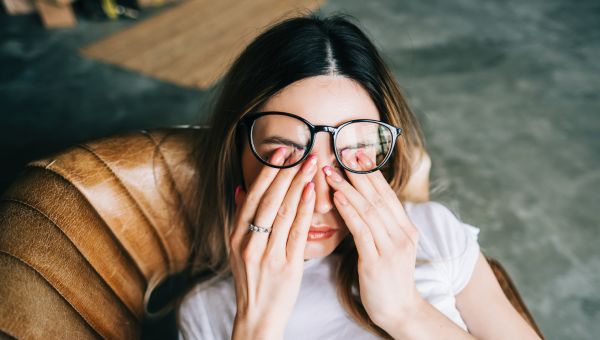
Most people feel tired now and then, but are your energy stores totally depleted? Here’s an analogy: If you blow a fuse in your house, lighting a few candles and using a flashlight doesn’t get the power back on. You'll need to find the blown fuse, replace it, and reset the system. The same goes for your energy. Instead of reaching for foods with a lot of sugar, carbs, or caffeine, try these simple, everyday tips to rebuild your energy stores.
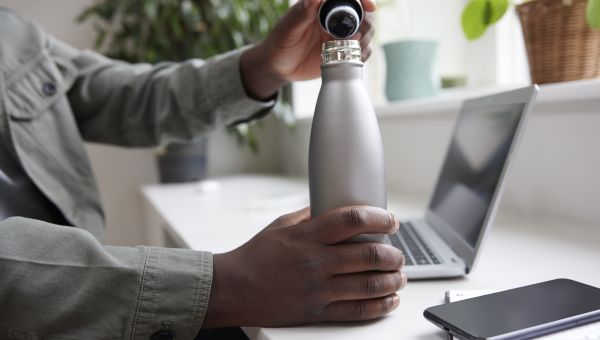
Stay hydrated
If you’re at the point of feeling thirsty, you’re already mildly dehydrated. Dehydration is a common cause of fatigue. In fact, being even just a little dehydrated can lead to less blood getting to your brain and cause tiredness, crankiness, and foggy thinking.
How much water you need to drink each day can depend on a variety of things, like how much you’ve exercised and how hot the weather is. You’ll know you’re hydrated if your urine appears clear or light honey- or straw-colored. If your urine is darker in color or if you’re feeling tired, try drinking some water.
Another benefit of drinking water is that it may help you manage your weight. According to a 2023 review published in the American Journal of Clinical Nutrition, people who drink water throughout the day may end up consuming fewer daily calories.
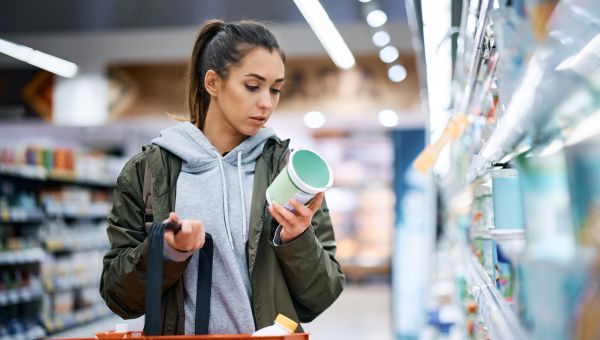
Cut back on sugar
A diet high in sugar provide energy that burns out quickly. For longer-lasting energy, limit simple sugars, syrups, and refined carbohydrates, like white bread and white rice.
Remember to read the list of ingredients on food labels. The names of simple sugars end in “-ose,” such as glucose, sucrose, maltose, and dextrose. If these types of words are among the first one or two ingredients, the food item is most likely high in simple sugars.
There are many artificial sweeteners and synthetic sugar alcohols on the market. Some of these products have side effects, and some may pose health risks. There are also novel sweeteners (like Stevia) produced from natural sources. Talk to your healthcare provider (HCP) about limiting sugars and what might be the most appropriate sugar option for you.
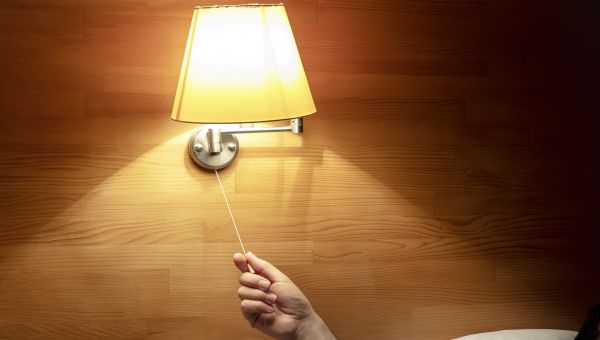
Consider your sleep habits
Sleep loss can really drain your energy. How much sleep you need depends on your age, according to the Centers for Disease Control and Prevention (CDC). Most adults aged 18-60 need at least seven hours of sleep each night to restore the ability to perform physically as well as mentally. Both coordination and thinking require brain cells to function well. Those over 60 years old may need between seven and nine hours of sleep.
Routines matter, too. Establishing a regular bedtime schedule and routine will help set your internal clock so your body knows when to sleep and when to wake.
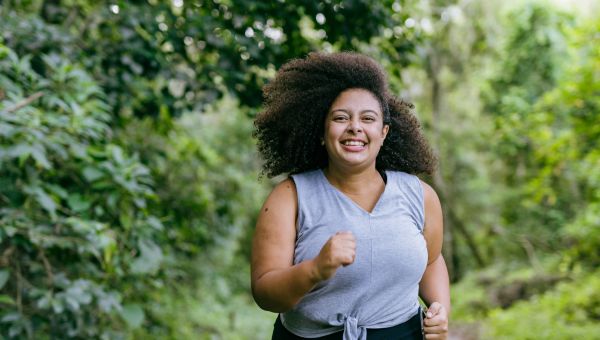
Trade TV time for exercise
Exercise can really boost your energy. Even on days when you don't feel up to it, try to do some kind of physical activity, such as walking. It can raise your endorphin levels, feel-good hormones that can help you feel more energetic and boost your mood.
To feel more inspired, try the 10-minute rule. Try to get moving for at least 10 minutes. Once you start, you may feel so much better that you'll want to keep going.

Spend some time in the sun
The shorter, darker days of autumn and winter can contribute to seasonal affective disorder (SAD), which involves neurochemical changes in the brain due to lack of sunlight. From late fall until spring, people with SAD may become depressed, sleep too much, withdraw from friends, and battle low energy and carb cravings. To prevent SAD and feel more energized, try to spend some time in the sunshine. Always remember to wear sunscreen when you’re outside, even in winter or on cloudy days. Ask your HCP about light therapy, which involves sitting in front of a special box that shines lights designed to treat SAD.
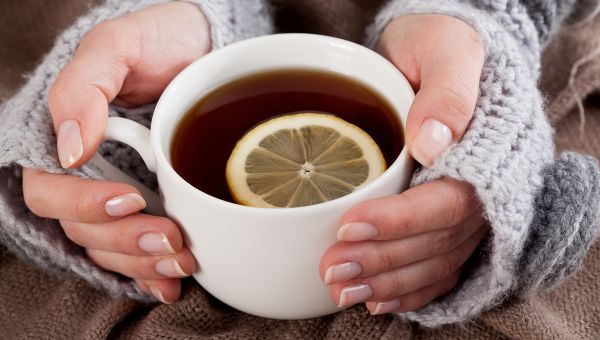
Sip tea
Black, green, and white teas all contain the energizing amino acid L-theanine, which isn't found in coffee. Tea also contains antioxidants, which can help neutralize free radicals in the body that can lead to inflammation and contribute to disease. Although green tea has less caffeine than black tea (28 mg vs 47 mg of caffeine in an eight-ounce serving, respectively), it may still promote a helpful level of energy and attentiveness due to the combined effects of energizing L-theanine and caffeine. For an alternative to hot tea, try iced green tea.
If difficulty sleeping is contributing to your fatigue, avoid caffeinated drinks in the afternoon and evening.
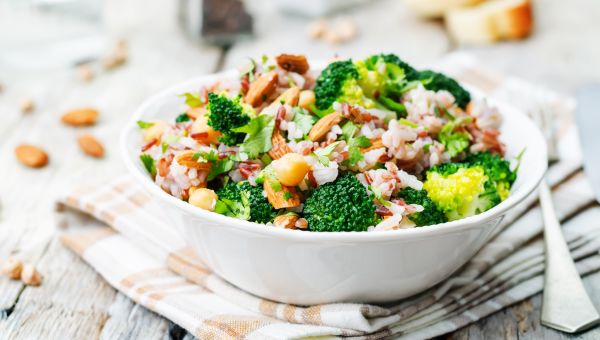
Get a daily dose of magnesium
For extra energy during the day, top your spinach salad (or other leafy green veggies) with toasted sesame seeds. Both are loaded with magnesium, a mineral that your cells need to convert food to energy. Other magnesium-rich foods include whole grains, legumes, milk, pumpkin seeds, and cashews. Magnesium not only boosts your energy, but it also helps strengthen your bones and keep your heart, nerves, muscles, and immune system functioning well.

Take a power nap
Power naps, or "cat naps," can boost your mood, memory, and productivity. They also increase your alertness and energy while lowering your blood pressure. To get the most out of your nap, keep it short (15 to 30 minutes), aim for midafternoon, and get comfortable. Take off your shoes, loosen tight clothing, and darken the room. Can't take a nap? Opt for an afternoon walk or quick office-gym workout.
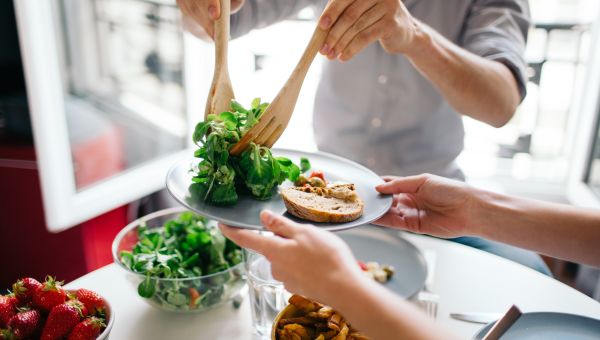
Eating for energy
To maintain steady energy levels, pair complex carbs that are high in fiber (such as beans, peas, and whole grains) with unsaturated fats (like avocado, walnuts, or mixed greens with olive oil). Add protein, such as lean meat, nuts, fish, and edamame, as an accent rather than as a main dish.
And try stopping before you’re completely full—the Academy of Nutrition and Dietetics recommends reaching a six out of 10 on the satiety scale each time you eat, which is when you feel full but not overstuffed. This can help you keep cravings away and lower the risk of feeling like you overate.
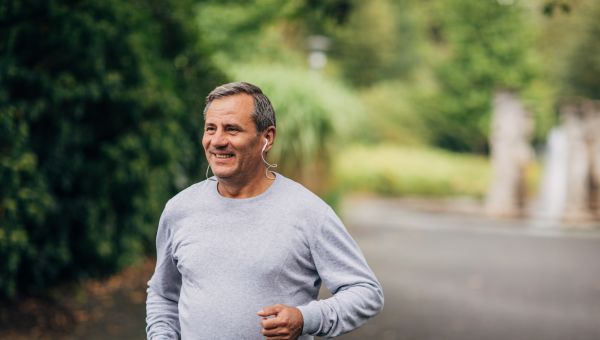
Train your brain
You can take steps to turn healthy behaviors into automatic habits. The CDC recommends a three-step process for establishing healthy habits:
- Determine what goal the new habit will help you reach, and make sure it’s S.M.A.R.T.:
- Specific
- Measurable
- Achievable
- Relevant
- Time-bound
- Track your progress, either through updating a friend or writing it down in a notebook or spreadsheet.
- Celebrate your success. Treat yourself to small rewards to positively reinforce your efforts.
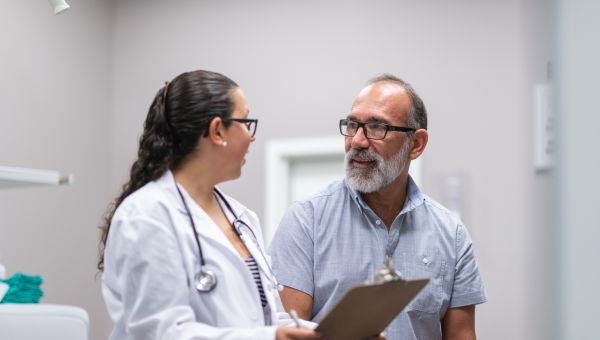
Talk to your healthcare provider if you continue to feel tired
If it feels like you've tried everything to boost your energy but still feel tired, make an appointment with your HCP. Share how you've been feeling, when your fatigue began, and what factors may be causing it. Prepare for your appointment, and ask questions to find out what treatment options may be available to you to make the most of your time with your HCP.

Centers for Disease Control and Prevention. About Sleep. Accessed September 3, 2024.
Cleveland Clinic. Dehydration. Page last reviewed June 5, 2023.
Trangmar SJ, González-Alonso J. Heat, Hydration and the Human Brain, Heart and Skeletal Muscles. Sports Med. 2019 Feb;49(Suppl 1):69-85.
Muckelbauer R, Sarganas G, Grüneis A, et al. Association between water consumption and body weight outcomes: a systematic review. Am J Clin Nutr. 2013 Aug;98(2):282-99.
Centers for Disease Control and Prevention. About Water and Healthier Drinks. Accessed September 3, 2024.
Cleveland Clinic. What the Color of Your Pee Says About You. November 8, 2021.
MedlinePlus. Simple Carbohydrates. Page last reviewed February 28, 2024.
Johns Hopkins Medicine. Facts About Sugar and Sugar Substitutes. Page accessed September 3, 2024..
National Institute of Mental Health. Seasonal Affective Disorder. Page accessed September 3, 2024.
Harvard T. H. Chan School of Health. Tea. Page last reviewed April 2023.
Mayo Clinic. Caffeine content for coffee, tea, soda and more. April 26, 2022.
Mancini E, Beglinger C, Drewe J, et al. Green tea effects on cognition, mood and human brain function: A systematic review. Phytomedicine. 2017 Oct 15;34:26-37.
National Institutes of Health: Office of Dietary Supplements. Magnesium Fact Sheet for Consumers. Page last updated March 22, 2021.
Dutheil F, Danini B, Bagheri R, et al. Effects of a Short Daytime Nap on the Cognitive Performance: A Systematic Review and Meta-Analysis. Int J Environ Res Public Health. 2021 Sep 28;18(19):10212.
Centers for Disease Control and Prevention: National Institute for Occupational Safety and Health. Nap duration. Page last reviewed March 31, 2020.
Academy of Nutrition and Dietetics. Eating to Boost Energy. Page last reviewed August 22, 2023.
Centers for Disease Control and Prevention. 3 Steps to Building a Healthy Habit. Page accessed September 3, 2024.
More On


video
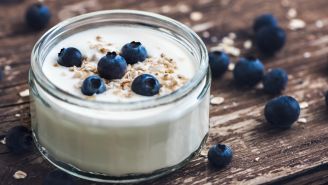
article


video


video


video
